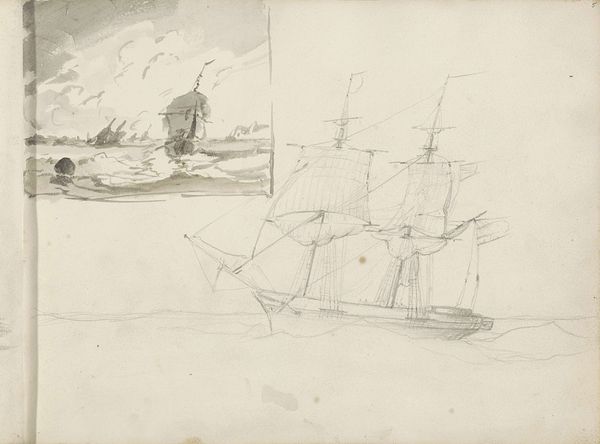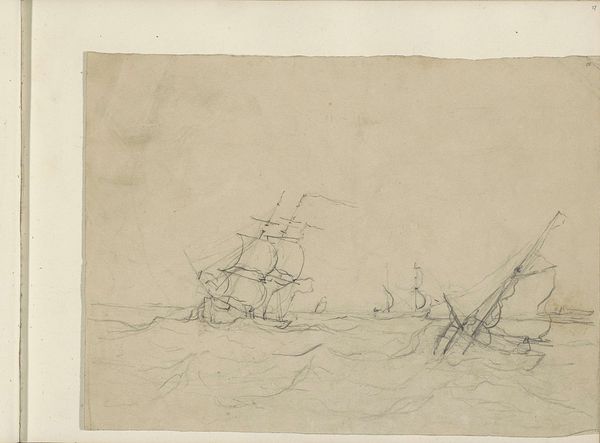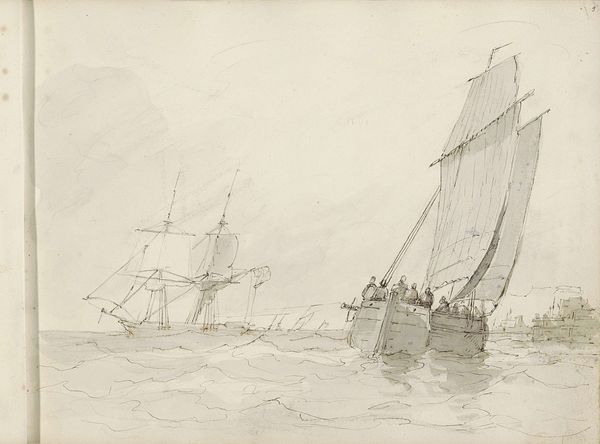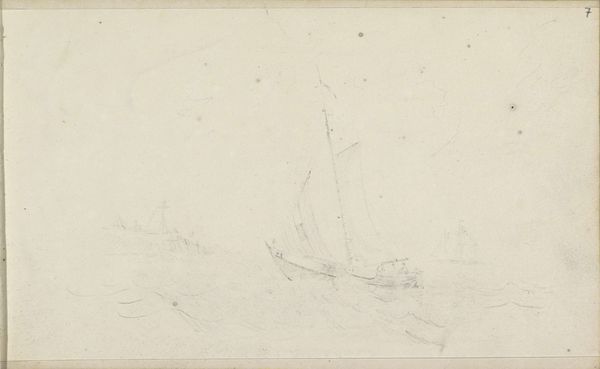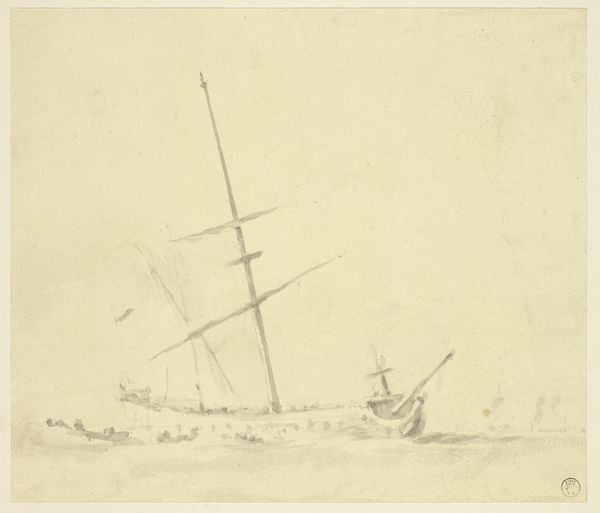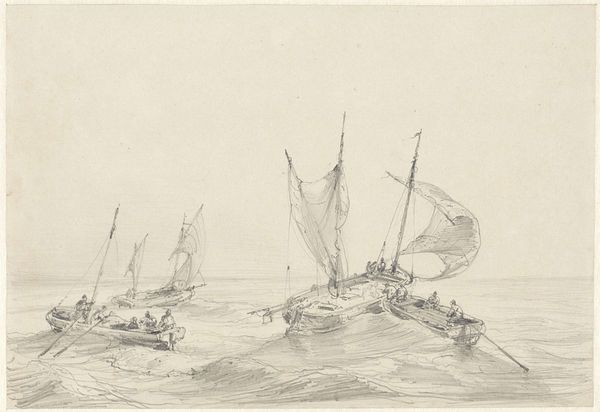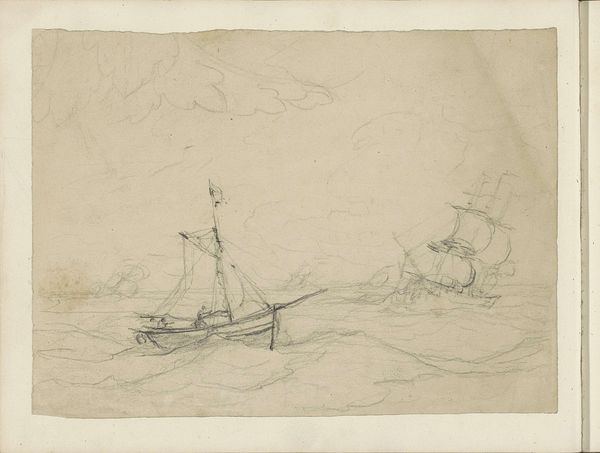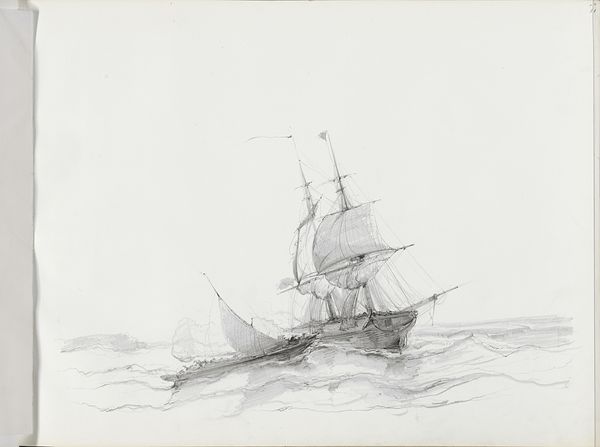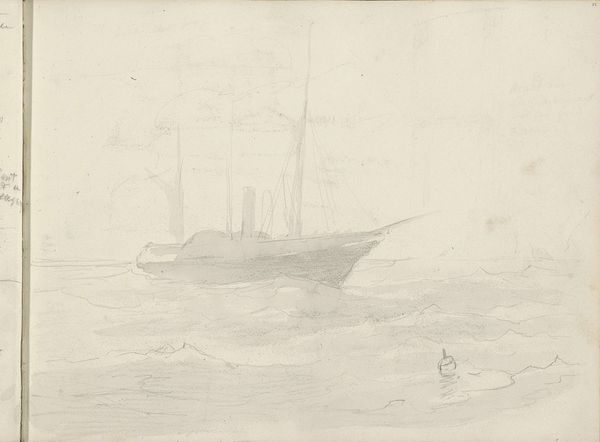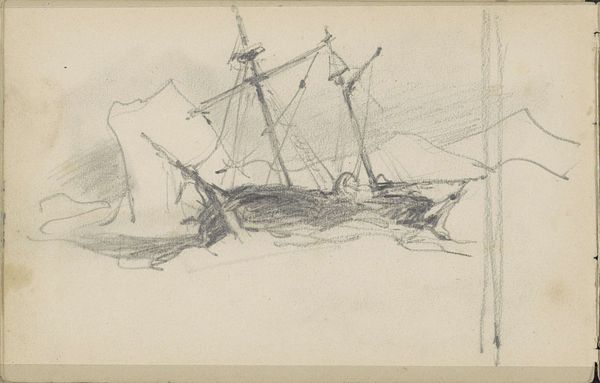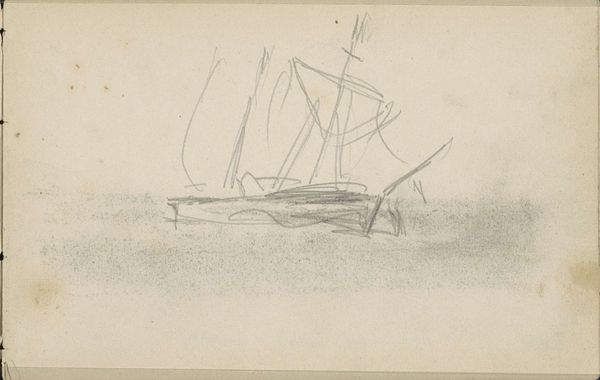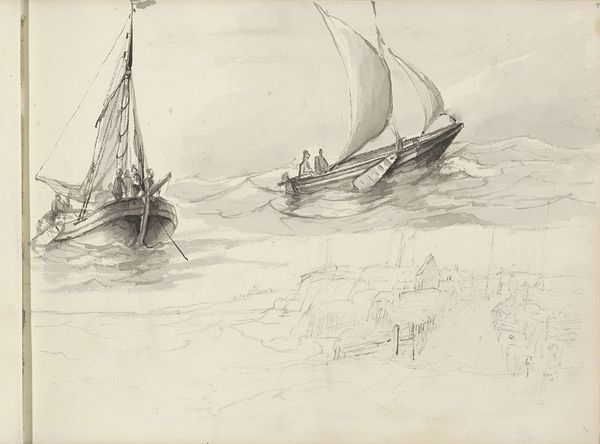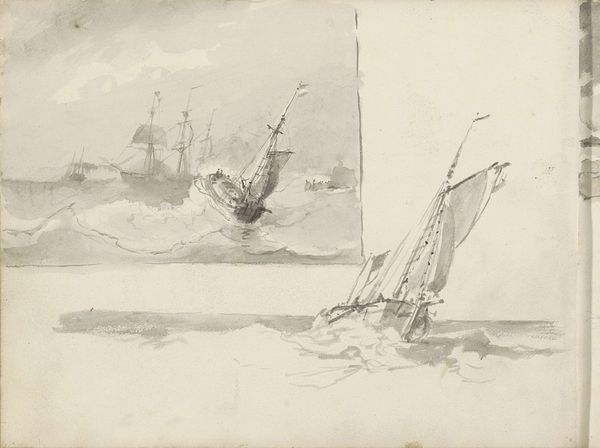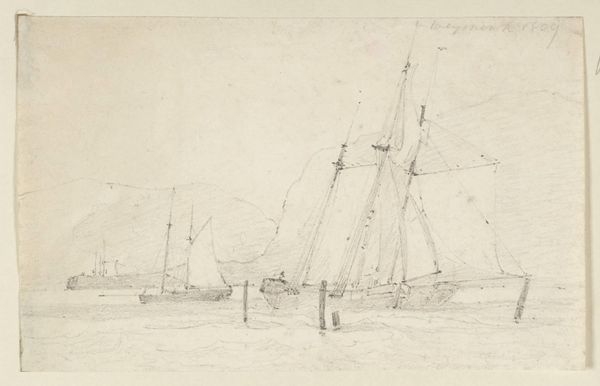
drawing, pencil
#
pencil drawn
#
drawing
#
amateur sketch
#
toned paper
#
light pencil work
#
pencil sketch
#
incomplete sketchy
#
landscape
#
personal sketchbook
#
romanticism
#
pencil
#
sketchbook drawing
#
pencil work
#
sketchbook art
Copyright: Rijks Museum: Open Domain
Curator: This delicate pencil drawing, “Two Sailing Ships on a Rough Sea,” comes to us from the hand of Petrus Johannes Schotel. It likely dates from sometime between 1825 and 1875. What’s your initial take on it? Editor: There’s a kind of urgent energy, a flurry of pencil marks capturing ships battling against what looks like quite a menacing sea. It makes me think of the immense physical labour and skill needed to handle those vessels, even in calmer waters. Curator: Precisely. Schotel, like many marine painters, lived and worked in a society heavily reliant on maritime trade and naval power. This sketch, while perhaps preliminary, speaks to the grand narrative of Dutch seafaring prowess. But beyond that, consider the materiality of it. A pencil sketch suggests something immediate, almost ephemeral. It perhaps gives us a more direct connection to the artist's process and observation. Editor: Definitely. You see the rapid strokes, the suggestive lines – it's the kind of sketch that would have been made in a personal sketchbook. The toned paper gives a certain warmth, which offsets the cold drama of the sea. Was this drawing intended as a study, maybe, for a larger painting? It's interesting to see what he chooses to emphasize with these basic materials. Curator: That's right. I think so. This drawing’s suggestive and open composition allows viewers to envision the grandeur and drama of naval achievements from the nineteenth century, something celebrated by a growing urban and mercantile society invested in overseas trade. But notice how the ships, while central, are rendered almost fragile. There’s an implication of the relationship between man and nature, perhaps? Editor: Yes. And the limited materiality draws attention to that very precarious balance of labour, skill and the sheer force of nature. These weren’t luxury yachts, but working ships; the drawing gestures toward the reality of maritime labor in that period. It’s also so easy to mass produce these pencils. Is there an analogy between them and the men operating the vessels? Curator: It is food for thought, definitely! Well, thinking of this, this small sketch really packs a punch. The dynamism, when combined with its historical context, leaves you wondering about the artist, his era, and the real dangers represented here. Editor: I agree. Looking closer at its raw texture brings a surprising perspective about the nature of materials and how they portray both fragility and endurance.
Comments
No comments
Be the first to comment and join the conversation on the ultimate creative platform.
